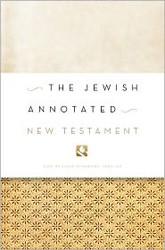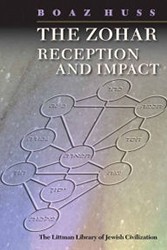“This is not just a Torah commentary for women,” says Dr. Tamara Cohn Eskenazi, Professor of Bible at Hebrew Union College in Los Angeles, “it is a Torah commentary for everyone. And it is not ‘Torah Lite.’” What is so remarkable about this volume, says Eskenazi, is that for the first time in history there now exists a sizeable collection of excellent rabbis, biblical scholars, poets, and academics who are Jewish women and whose insights can be gathered in a written forum where they reflect, analyze, and comment upon our sacred text. “Only since the last third of the 20th century,” write Eskenazi and Weiss, “have Jewish women become truly visible in both the academic arena of biblical scholarship and in specifically Jewish circles.”
According to the editors, this Torah commentary focuses on three aspects of the text: “that which relates to women, that which is obscure to contemporary readers, and that which remains particularly significant for Jews today.”
For so many reasons, this volume is a remarkable revolution in biblical scholarship and Jewish exegesis. It is inclusive, thorough, and provocative. It is also a work of profound collaboration and creativity: it includes a new, “gender-accurate” version of the NJPS translation of the Torah by Rabbi David Stein and the late Rabbi Chaim Stern; it highlights the scholarship and poetry of countless Jewish women gleaned from millennia of Jewish writings; it introduces poetry and personal reflections on the Torah into the genre of biblical criticism.
In their introduction Eskenazi and Weiss explain that “at times different parts of the Commentary treat similar topics, or they approach the same topic from divergent standpoints— just as various biblical verses interrelate. Therefore the commentary frequently includes cross-references that enable the reader to engage more deeply in the study of the Torah.” Five different modes of analysis and interpretation address each Torah portion, utilizing ancient and contemporary genres of biblical scholarship side by side.
The Commentary begins with brief essays reflecting on “Women and the Interpretation of the Torah,” “Women in Ancient Israel – An Overview,” “Women and Post-biblical Commentary,” “Women and the Contemporary Revelation,” “The Poetry of Torah and the Torah of Poetry,” each authored by a remarkable and respected Jewish woman: Carol Myers, Judith R. Baskin, Ellen Umansky, and Sue-Levi Elwell. Their insights on each of these topics are ground-breaking, refreshing, and steeped in the wisdom of tradition.
One of the foundational messages inspiring this collaboration was, “do not forsake your mother’s Torah” (Proverbs 6:20). Eskenazi and Weiss write, “in this volume, biblical scholars illustrate what the Torah probably meant in its own cultural milieu and literary context. Then, scholars of rabbinic Judaism, Jewish thought, and other academic disciplines, along with clergy and other Jewish professionals, augment the interpretation of the biblical text to show how the Torah continues to have new meanings for later generations.”
The women whose writing is included in the volume are a diverse, inter-disciplinary group, including: Rachel Adler, Debbie Friedman, Ellen Frankel, Blu Greenberg, Judith Hauptman, Regina Jonas, Noa Kushner, Golda Meir, Carol Meyers, Judith Plaskow, Riv-Ellen Prell, Hannah Senesh, Henrietta Szold, Dvora Weisberg, and Zelda. They come from all streams of Jewish life, from various periods in Jewish history, and provide unique contributions to the canon of biblical studies.
“God continues to speak to each generation; in this one, we hear women’s voices,” writes Ellen Umansky, citing a midrash on Exodus that relates that women, too, heard the divine voice at Sinai, “each according to their strength” (Shmot Rabbah 5:9). The Torah: A Women’s Commentary is a profound and important record of women’s reflections on revelation. Every Shabbat, Jews throughout the world recite the words, “she [the Torah] is a tree of life”. This Commentary goes one step further, illustrating that the Torah, indeed, is a living, vibrant, and contemporary source of life to all “who hold onto it.”



